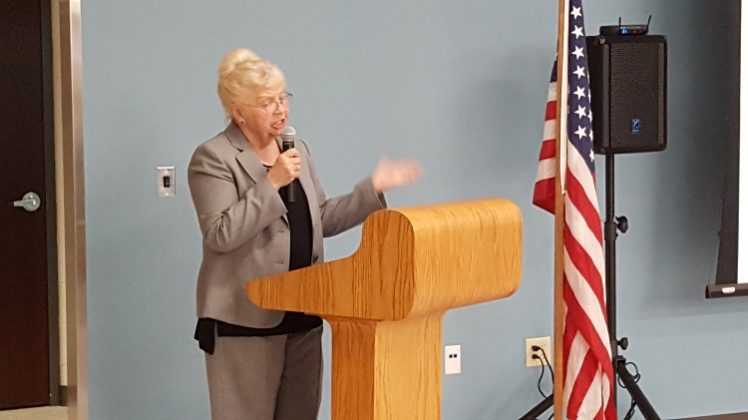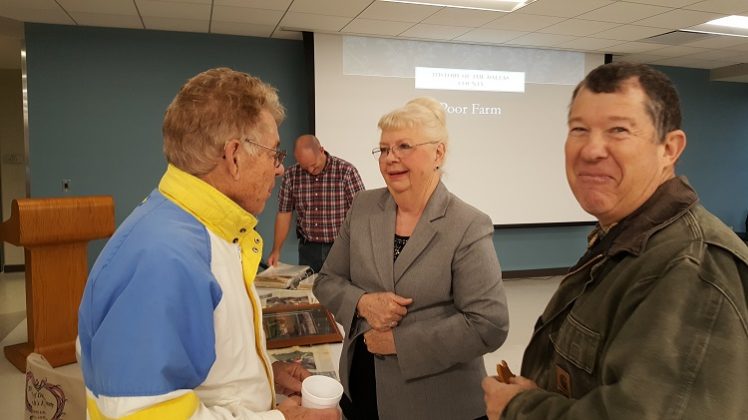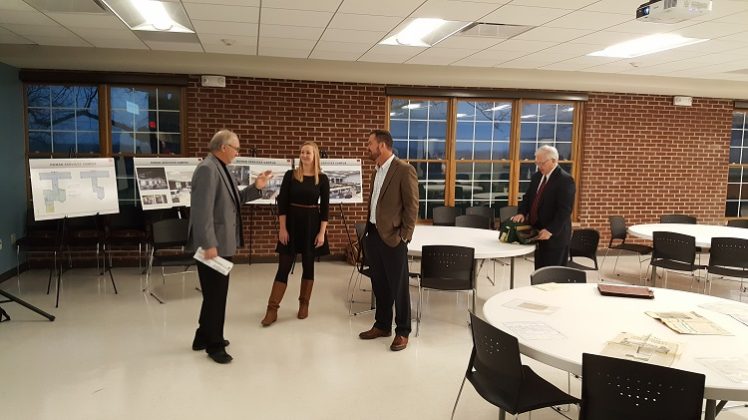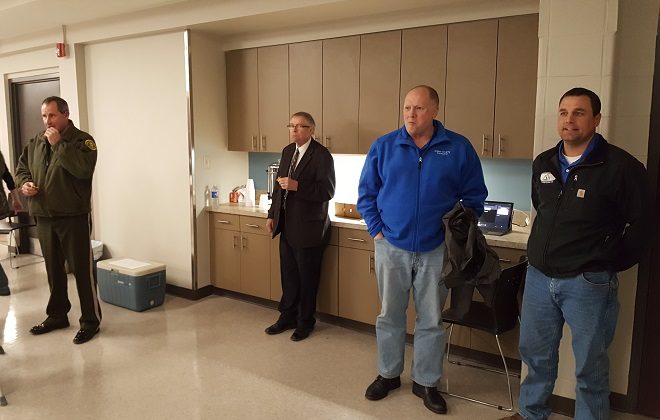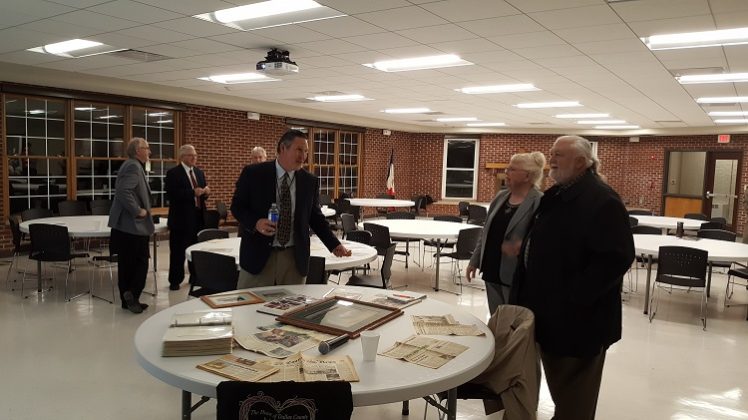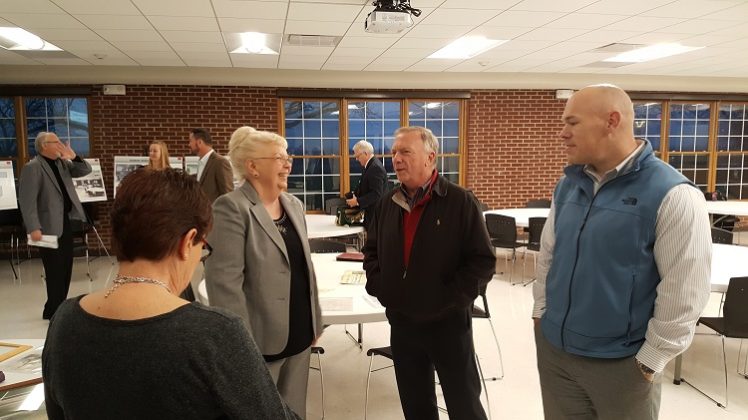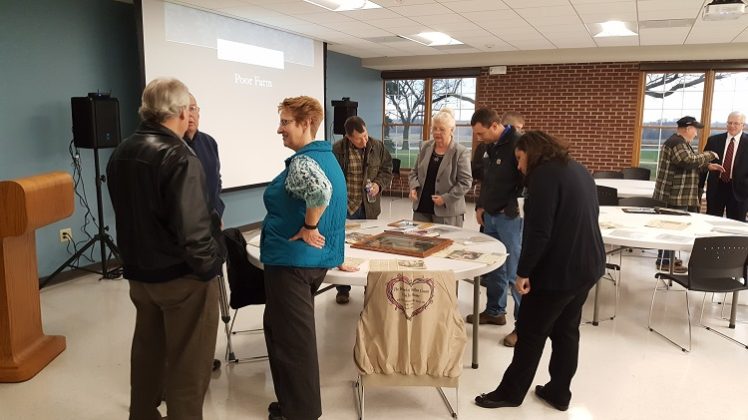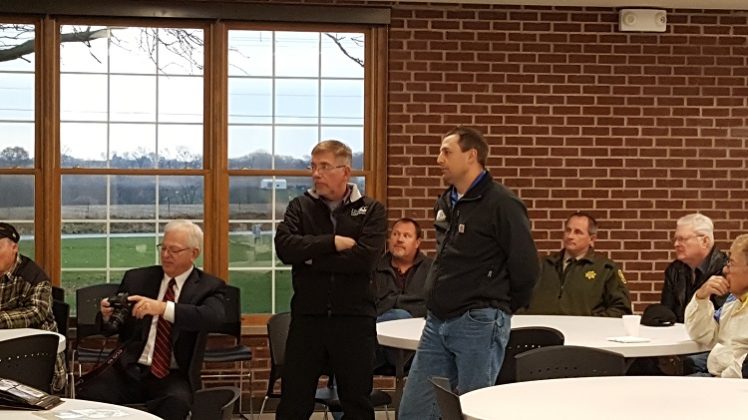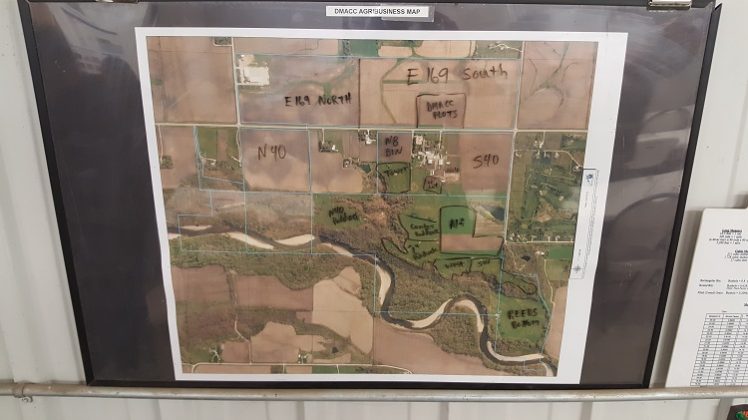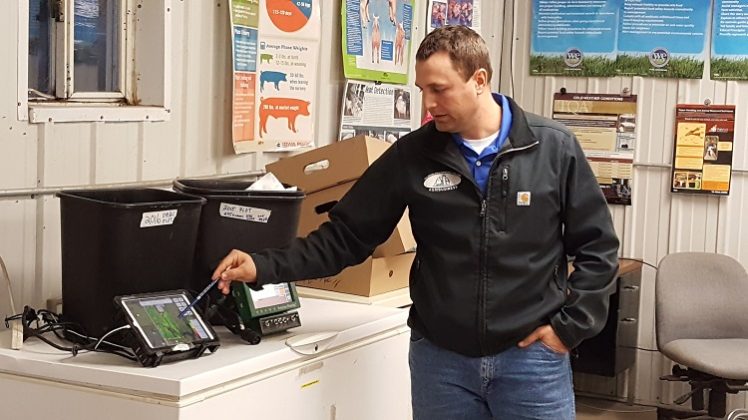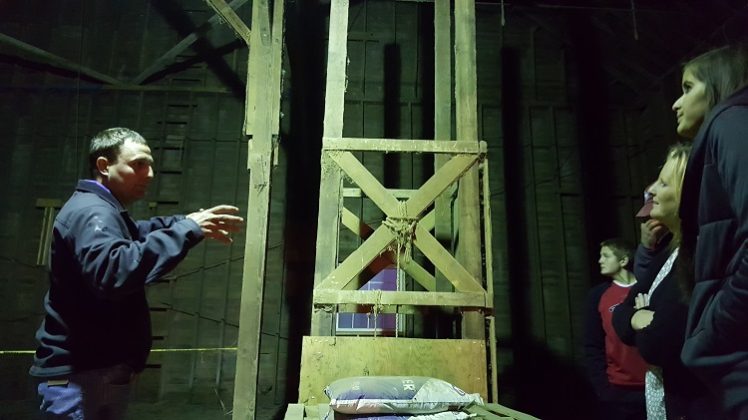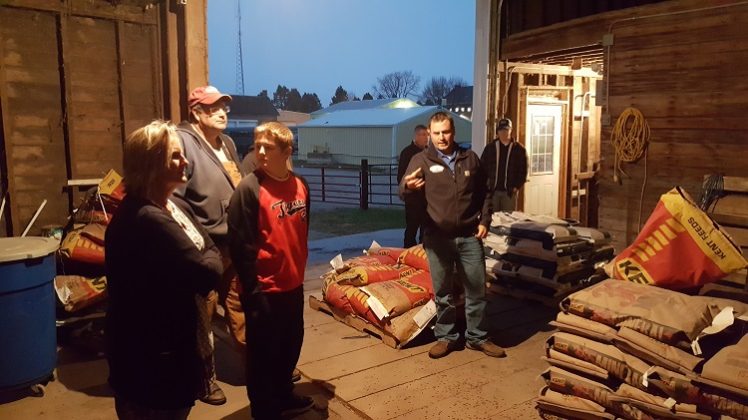After remodeling the old Dallas County poor farm to the tune of about $5.5 million, the Dallas County Board of Supervisors hosted an open house last month in the newly christened Human Services Campus (HSC) at 25747 N Ave. on U.S. Highway 169 north of Adel.
The open house was free and open to the public and featured tours both of the new administrative offices and the surrounding farm ground, which the county leases to the Des Moines Area Community College (DMACC) agribusiness program for their crop and livestock operation.
The newly remodeled Dallas County HSC now houses several county departments, including Public Health, Environmental Health, Community Services — which comprises Case Management, Mental Health/Developmental Disabilities and General Assistance — and the county-level offices of the Iowa Department of Human Services.
The Dallas County Sheriff’s communications center and the Dallas County Emergency Management Department are also housed at the HSC.
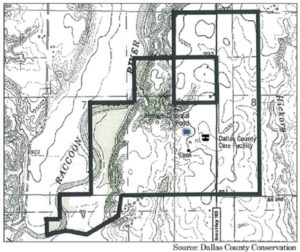 A highlight of the three-hour open house was Karen Smith’s presentation on the history of the Dallas County poor farm, later known as the Dallas County Care Facility. Smith retired in 2006 after running the care facility for 32 years.
A highlight of the three-hour open house was Karen Smith’s presentation on the history of the Dallas County poor farm, later known as the Dallas County Care Facility. Smith retired in 2006 after running the care facility for 32 years.
Smith’s father- and mother-in-law, Homer and Effie Smith, ran the farm from 1951 until she took over its administration in 1974, so in a sense Smith is a repository of more than 60 years of the history and memories of the county farm, covering most of the post-World War II period and approaching the natural limit of any living human memory.
Smith described the county home in the days before anti-psychotic medications were used to control the behavior of the mentally ill.
“There was a jail,” she said. “It was in the basement. It had no windows. It was pretty grim. I remember that because I went through that building like every other kid in this county did. It was used for storage by the time I was working out here, and my in-laws were here then, too.”
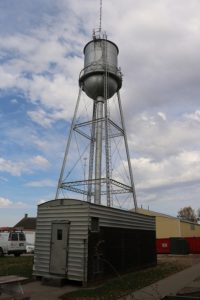
Smith also noted many of the physical features of the former county home, such as the conspicuous water tower built between 1910 and 1920 by Anson E. Marston, the renowned civil engineer and first dean of engineering at Iowa State Agricultural College, now known as Iowa State University.
Marston’s early work focused on sanitary research, including water and sewage issues, and he built many water towers around Iowa. The board of supervisors is considering demolishing the old Marston tower at the new Human Services Campus.
“It is a landmark,” Smith said. “It’s on the sign out here by the road. There’s a big red star near the top that we lit every year around Thanksgiving, and that’s how the community knew that in the next week or so that the yard’s going to be full of Christmas decorations.”
Smith recalled the many Christmases celebrated by the residents of the Dallas County Care Facility when it was still a working farm, raising crops and livestock and stocking a huge pantry.
“So at Christmas we’d have capons and mashed potatoes and gravy — real ones — and county employees brought all the other food. A good time was had by all, and the residents did a program for them. We had a lot of fun doing that.”
The English-style dairy barn, still used by DMACC for storage and farrowing, was built in 1884, Smith said, the same year as the original poor home, which was “built out here on top of a hill because in those days they seemed to think that evil spirits would not be so close to the people if you built on a hill and also because they were closer to God on top of a hill.”
The 1884 home was demolished in 1979, when the north wing was built.
Smith gave high praise to the teachers — LaVonne Lapp Renshaw, Esther Mack, Ruby Schwarz and Stephen Hansen — who worked over the years with the residents.
“They were all excellent,” Smith said. “They taught them math. They taught them reading. They taught them to print their names. They taught them symbols on bathrooms. They taught them how to read menus. They taught them some better manners. The things that we all teach our children were things that these people did not have an opportunity to do. So they became very good about going about in the community and were welcomed by everybody. We went to every dinner that anybody ever had. They loved to do that, and the community loved to see them. They liked to see them at church. Anything that was going on, we got to do.”
Smith paused to clear her throat.
“And they said they couldn’t do things, they couldn’t learn. They were so wrong,” she said.
The Dallas County Care Facility closed in March 2014 after the few remaining residents learned to adjust to new surroundings. Renovation began shortly afterward, and office workers began occupying some HSC offices in early 2016.
Surrounding the HSC are the 526 acres of farmlands, woodlands and wetlands of the former county farm, the largest such holding of any county in Iowa. The DMACC agronomy department has leased the farmland, barns and stockyards since 2005 and holds a three-year lease running through March 2017.
DMACC pays about $60,000 a year to lease 250 acres of cropland, 84 acres of pasture and the various buildings, storage and equipment of the farm. The agribusiness program conducts weekly labs there, covering farm operations such as planting, harvesting and daily animal care. About a dozen seed companies also grow on a variety of test plots and competition plots on the farm.
In spite of the day’s freezing rain, Travis Lautner, DMACC farm coordinator, gave tours of the farm during the open house, outlining the operation and the educational value of a working farm for ag business students. Lautner demonstrated some of the high-tech equipment students use in learning the latest methods of precision farming.
The program raises 100 acres of corn, 100 acres of soy beans and 125 acres of pasture and hay ground, Lautner said. There are seven rotational grazing paddocks and a small-scale breeding program for six to 12 hogs and 15 to 20 cattle annually.
“Our students are able to see the whole process,” Lautner said,”so calving and then we grow them up and stick them in a feed lot, and we show them some of the niche marketing, some of the private sales and things like that, so we start putting some dollar figures to it.”
The farm operation tries to model sustainability and environmental responsibility, Lautner said, with cover crops and other soil conservation practices. He said managing the livestock manure is “critical.” The animal waste is run through a “biofilter, a series of wood chips, and then that ends up channeling down towards one of our pastures, so it goes through wood chips, goes through a little bit of our feed yard, goes down into a waterway and kind of disperses as best we can.”
When the Hy-Line International chicken farm at Black Corners found itself with more chicken manure on its hands than it needed, the company struck a deal with DMACC to give the manure to the training farm for free. All DMACC had to do was pay for its application.
The free chicken manure was applied during the first week in December, well after the open house at the HSC. A lengthy hose — nicknamed the umbilical cord — was run from the chicken farm’s manure pit to the college’s crop lands on the east and west sides of U.S. Highway 169.









